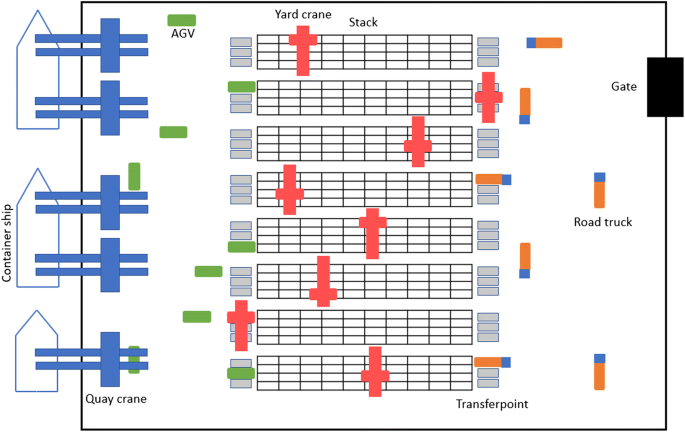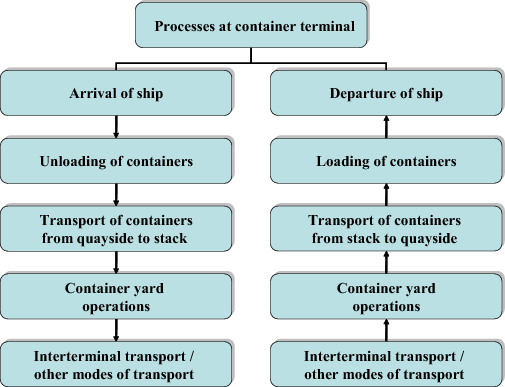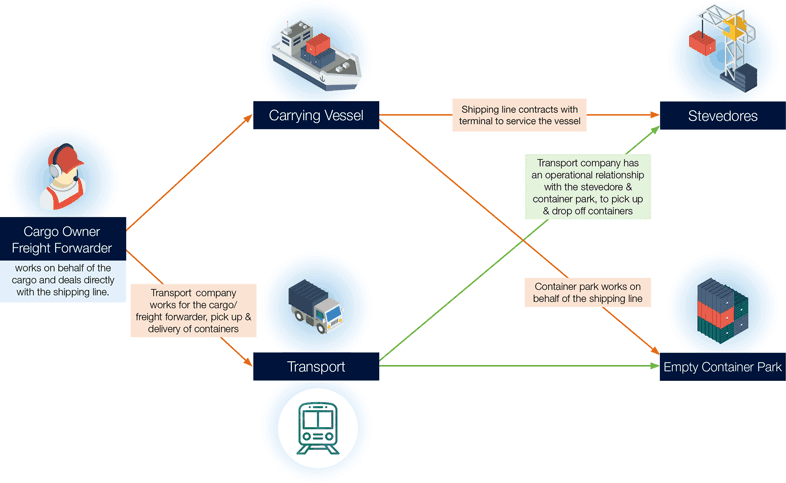Container terminal planning operations american association of port authorities marine terminal management training program long beach california june 9 13 2013 thomas ward pe se d pe chief engineer ports america.
Container yard planning strategies.
Port container type length and container weight.
As the name suggests the yard planner is responsible for the planning and allocation of all physical container stock in the yard port terminal.
Storage planning assigns storage locations to the containers in the vessel bays.
Container yard planning click to enlarge when developing the container terminal simulation models it is necessary to determine the required technical characteristics of the cargo terminal including capacity and throughput of warehouses and cargo fronts as well as the terminal s specific characteristics for example the average number of storage tiers for a container terminal.
Due to the lack of accurate data before the arrival of vessels in the port the planning of the container positions in the yard cannot begin before the unloading starts.
The performance and results of yard planning strategies is based on berth planning and vice versa.
To ensure the traffic flow of con tainers the traffic congestion of transporting vehicles is generally considered in these two research topics.
This means that a very close co operation is needed.
The performance and results of the vessel planner is depending on the options given from berth and yard planning.
When a ship arrives in port the yard planner must organise where in the terminal the cargo from the ship needs to go and also arrange what cargo goes back onto the ship.
Berth planning vessel planning yard planning above three planning modes are well connected.
The handling effort of each container for yard planning consists of two parts.
Age strategy planning and fleet sizing decision.
Berth planning controls container loading and unloading.
A common strategy for export.
Namely moving between yard and quay by transporters and repositioning in the stack by yard cranes.
When the container traffic is heavy and land available is scarce multi level stacking is a common practice in storage yard planning.
Positions which is a task of the yard planning module see above.
Planning of the salct includes berth planning yard planning storage planning and logistics planning.
The planning level decides how to allocate storage space to incoming containers and how to deploy yard cranes for container handling.
At the pp containers are picked up by rail mounted gantry cranes rmgs and stored at some predetermined position.

























